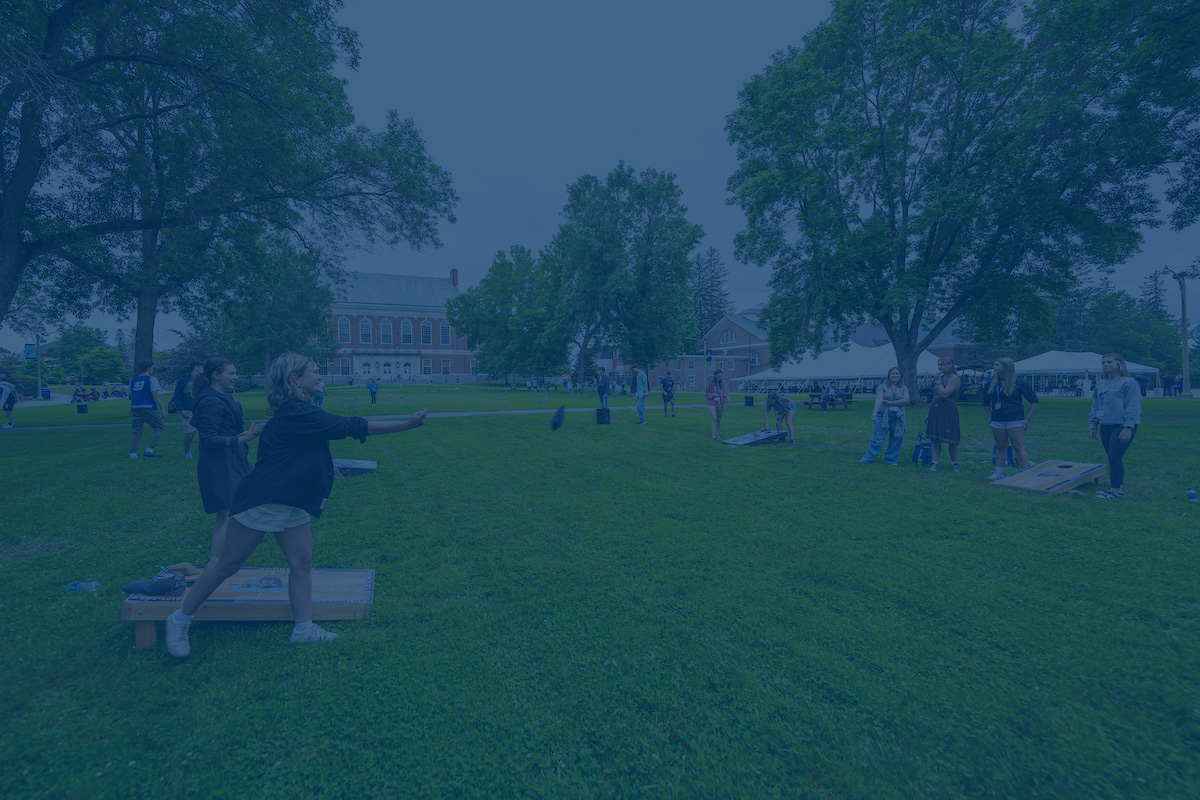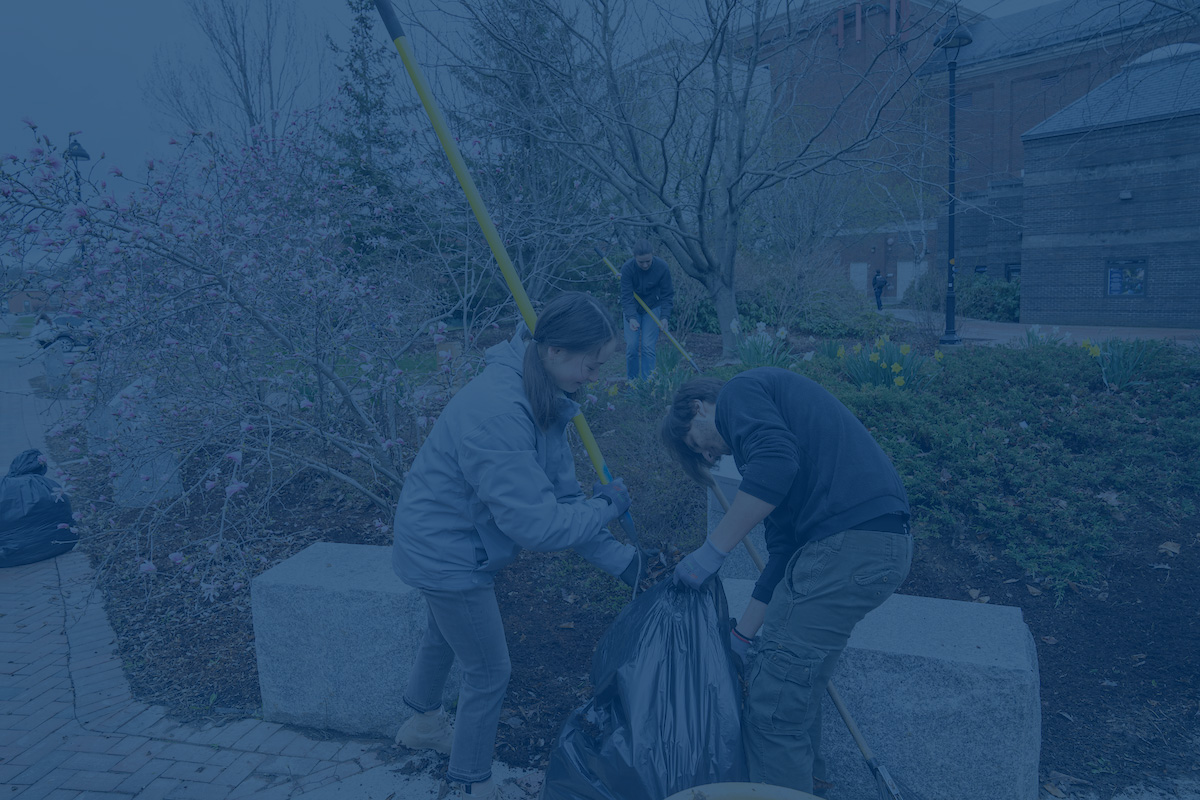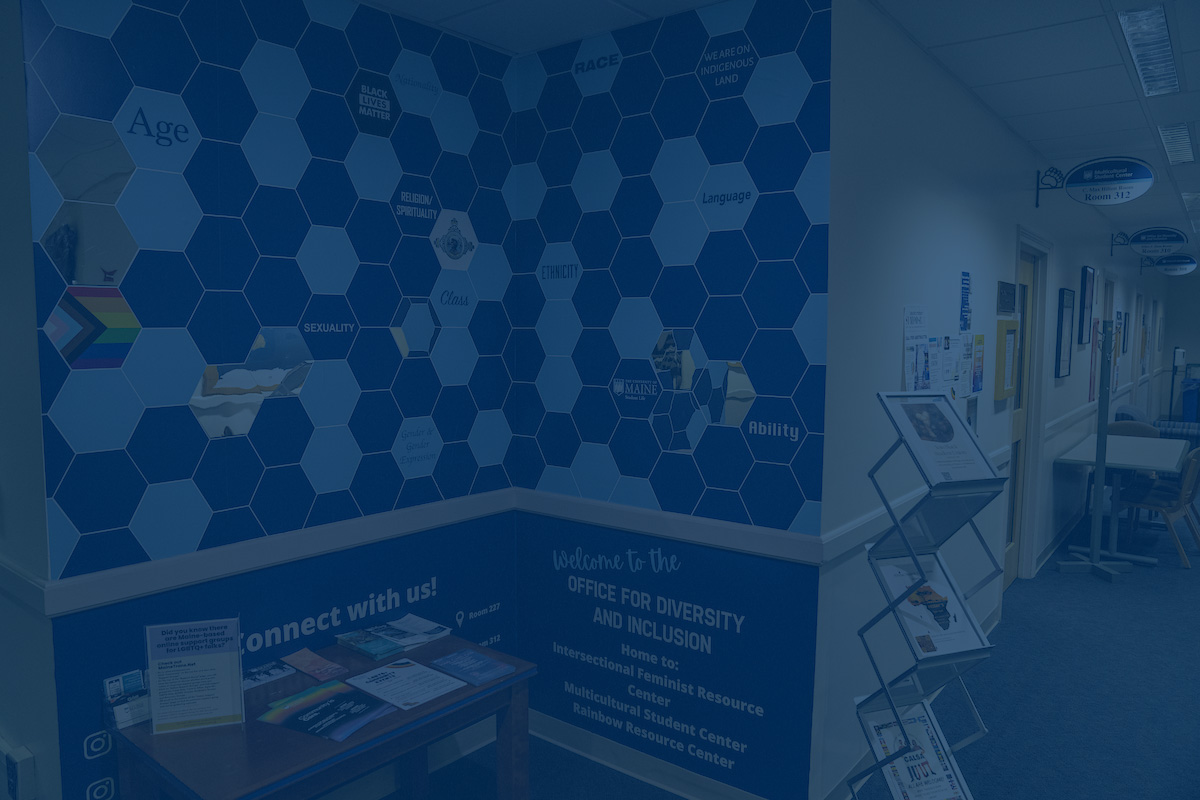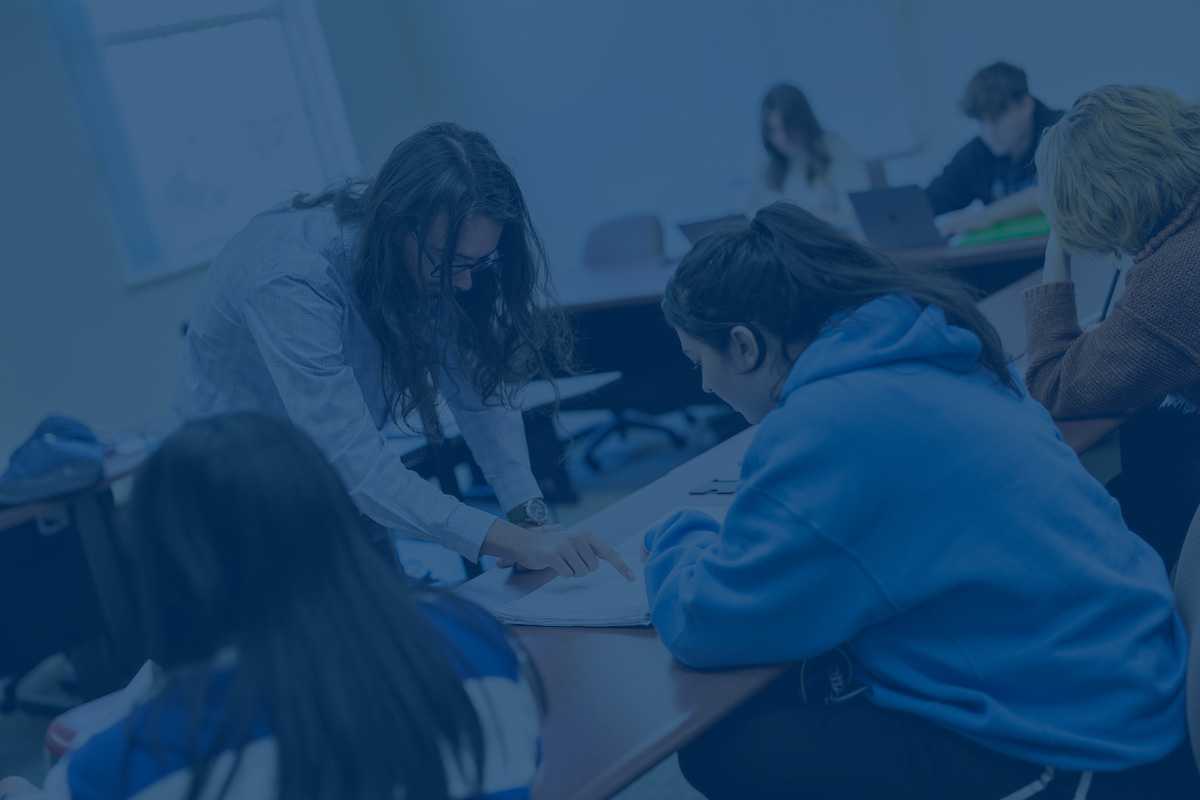Current Students
Advising
Our faculty are dedicated to guiding students through their chosen curriculum to achieve their career goals. Advisors are assigned upon students accepting admission and launching their program of study. Advisors meet with students at least once per semester to plan course schedules and assess degree progress. Faculty advisors for academic advising will remain consistent throughout progression in the program. This ensures continuity for academic planning and mentorship. Capstone advisors, sometimes referred to as first readers, will be assigned toward the end of the program of study as students develop individual areas of interest.
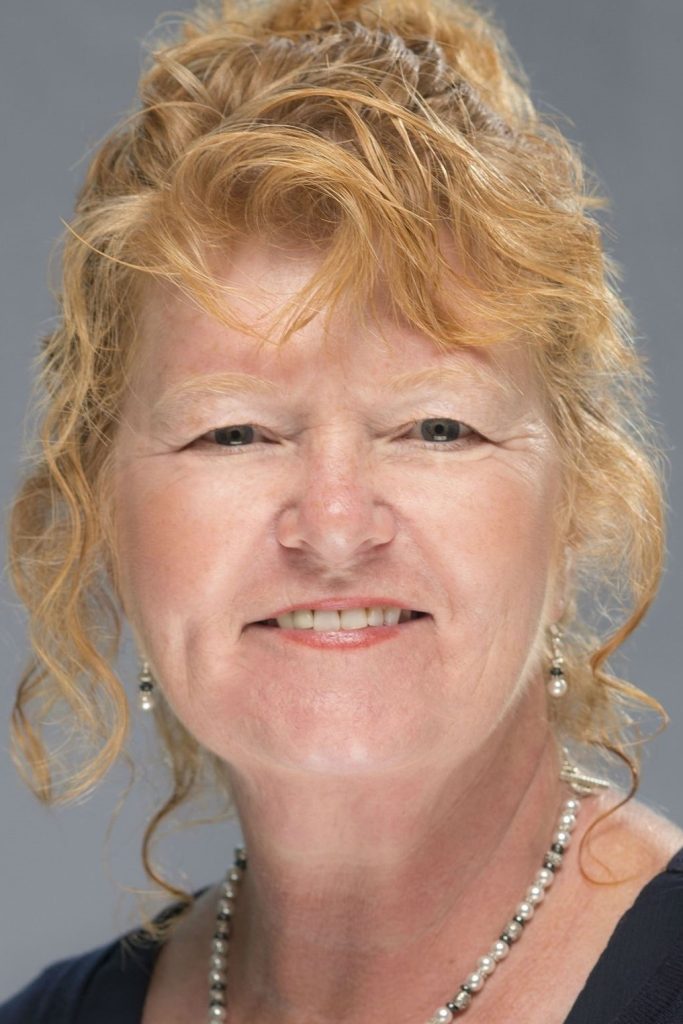
Graduate Program Coordinator:
Dr. Valerie Herbert, Graduate Program Coordinator, Associate Professor of
Nursing
Valerie brings many years of clinical and teaching experience to the
Graduate Program Coordinator role. As graduate and undergraduate
faculty, she is passionate in facilitating students’ success in achieving their
professional goals. Using a background in innovation, Valerie facilitates
students to ‘think out of the box’ to develop new initiatives and address real
clinical issues in today’s healthcare organizations.

FNP Program Coordinator:
Sean Sibley, FNP Program Coordinator, Clinical Assistant Faculty sean.sibley@maine.edu
Sean is passionate about preparing Maine’s family nurse practitioner workforce. As clinical faculty, he is active in clinical practice as a primary care provider. Evolving from a registered nurse to a nurse practitioner is a vulnerable task that requires commitment and energy. Sean works to reduce barriers, provide resources, and professional support for students’ success on this exciting journey to care for communities as a FNP.
Helpful Downloadable Forms
The University of Maine School of Nursing and the Graduate School have many resources to provide graduate students with a rich and fulfilling experience. Some of the resources are listed below.
- Online new student orientation program
- The Graduate Student Government
- UMaine GRAD was designed to provide a framework for graduate students to learn and master the skills necessary for success in personal and professional opportunities while at UMaine and beyond. One of our goals is for our UMaine graduate students to be confident, mindful, attentive, intelligent, and exceptional in all realms of life. To do this, we created a platform for students to continue to grow, to become resilient, to strive for advancement, and to deliver their ideas and themselves in the most upstanding way.
G: Growth – the process of developing
R: Resilience – the ability to adapt effectively to adversity or change
A: Advancement – the process of promoting and progressing to a higher state
D: Delivery – the ability to effectively articulate and present
UMaine Online
Taking an online course or program of study? UMaineOnline provides multiple resources for remote learning, tips for success, technology and academic support.
Writing Center
The writing center at the University of Maine provides students with assistance in composition and/or presentation.
Library/APA Resources
School of Nursing
All of the School of Nursing faculty and administrative staff are committed to supporting graduate student education. The graduate and FNP Track Coordinators and your academic advisor are available to support you throughout your program of study. Please feel free to contact them as needed. The clinical coordinator can assist you in identifying and seeking out clinical practicum sites.
Learning Resource and Simulation Education Center
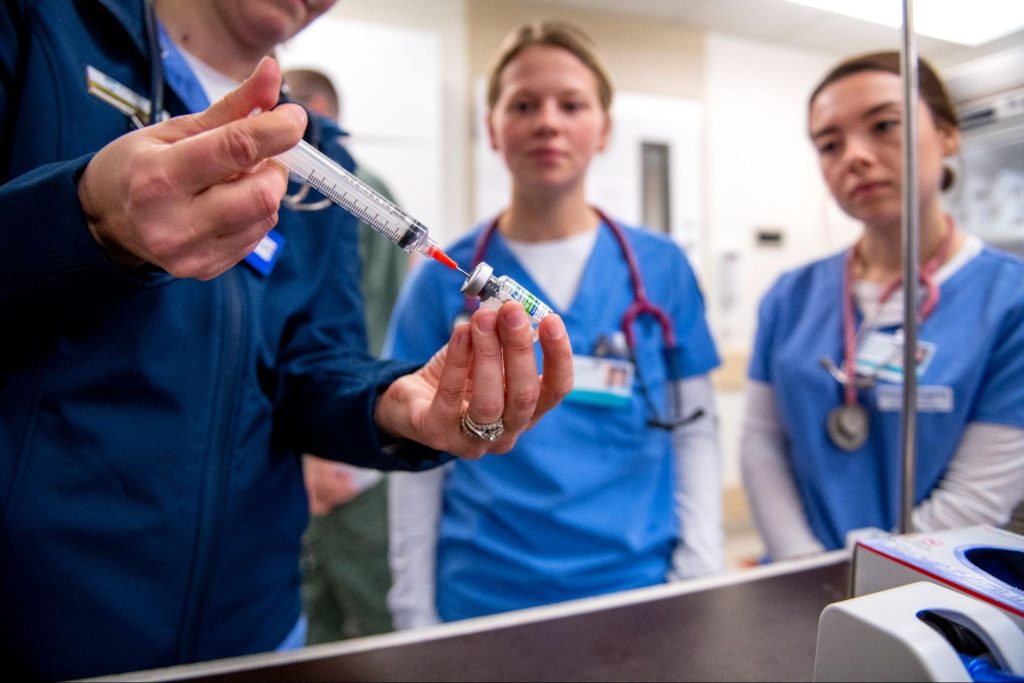
The mission of the Learning Resource and Simulation Education Center (LRC) is to provide a collection of resources and space to support the clinical learning needs of the curriculum of the School of Nursing and to serve the University of Maine community. These resources are specific to meet the needs of active learning in the areas of health assessment, medication administration, skilled nursing care, therapeutic communication, clinical judgment, and critical thinking for the purpose of competency-based assessments to meet program level outcomes. In addition, the LRC provides a learning environment that is safe, supportive, and conducive to the socialization of students into the clinical practice of nursing.
Location: The LRC is located on the first floor of Dunn Hall (rooms 112/114, 115, 124/128, 130, 140, 142, & 144).
Times: The exact hours of operation of the LRC will vary each semester, based on needs of the programs.
The LRC staff will be available M, T, TH, F, 8-2, with additional hours on Wednesdays, afternoons, and evenings based on the availability of student employees, staff, and schedule of laboratory courses. Additional hours will be published each semester and made available to faculty and students.
Open Lab: The lab is open to all students on Fridays, 9a-12p, for the purpose of practicing clinical skills. Additional hours may be available upon request. Contact the LRC manager in advance for space availability.
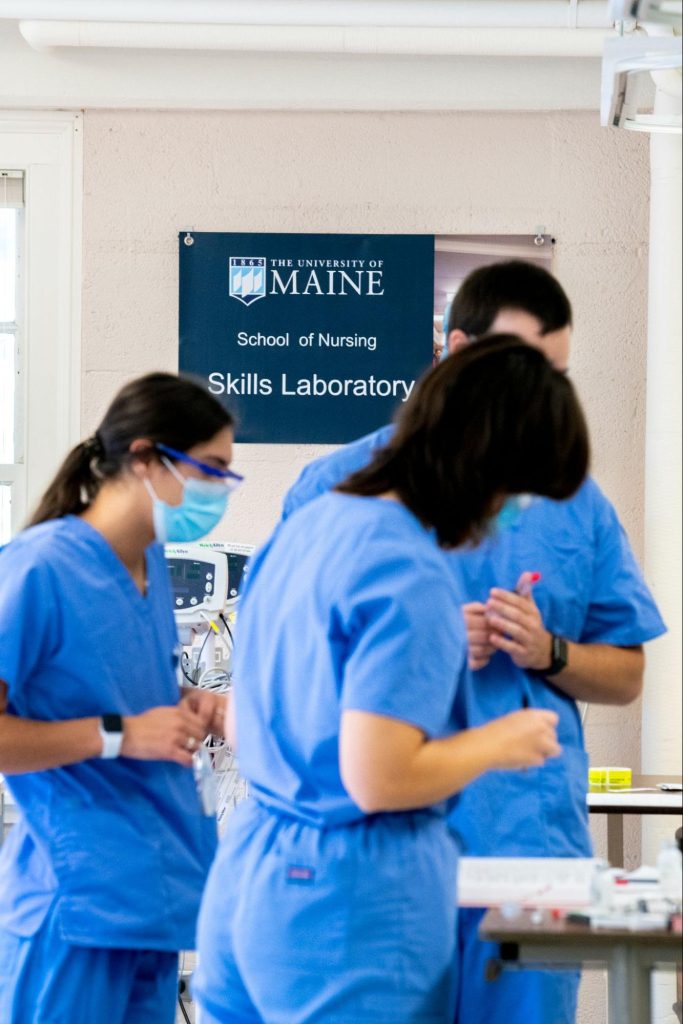
Usage: Most equipment and lab space can be made available to students. Any requests for use of the lab, equipment, and space outside of regularly scheduled labs, must be communicated via email to the lab manager at least 1 week in advance.
Please use all equipment as it is intended. Ask LRC staff for assistance if you have questions about how to use equipment and report any details regarding broken or faulty equipment to LRC staff.
Clean hands and pencils, no pens, are required when working with any of the LRC manikins.
All equipment and supplies are expected to be left where and how it was set-up. All trash and personal effects should be managed accordingly.
Code of Conduct: Students are expected to conduct themselves in a professional manner during all laboratory experiences – language, confidentiality, and mutual respect.
Students are expected to do a “last look” before leaving any lab to return supplies and equipment to where they found them (i.e. bed low, side-rails up, and linens made), dispose of trash, and remove personal belongings.
Students should refer to individual course syllabi for specifics related to all lab experiences for the course they are currently enrolled in. Course related questions should be directed to course faculty. Attendance is mandatory for all assigned laboratory and simulation experiences. The use of mobile phones is prohibited during skills and simulation laboratory sessions.
Ethics: Students are expected to maintain the privacy and confidentiality of any standardized patients, their peers, and competency or simulation course content. The use of social media, taking photos, and/or posting any identifiable information is strictly prohibited. Any violation of this policy will be regarded as a HIPPA violation and result in disciplinary action.
The LRC is considered a safe space for the purpose of developing and demonstrating professional nursing practice. Every effort will be made by faculty and staff to create this type of learning environment.
*Any breach of LRC expectations may result in being asked to leave the LRC.
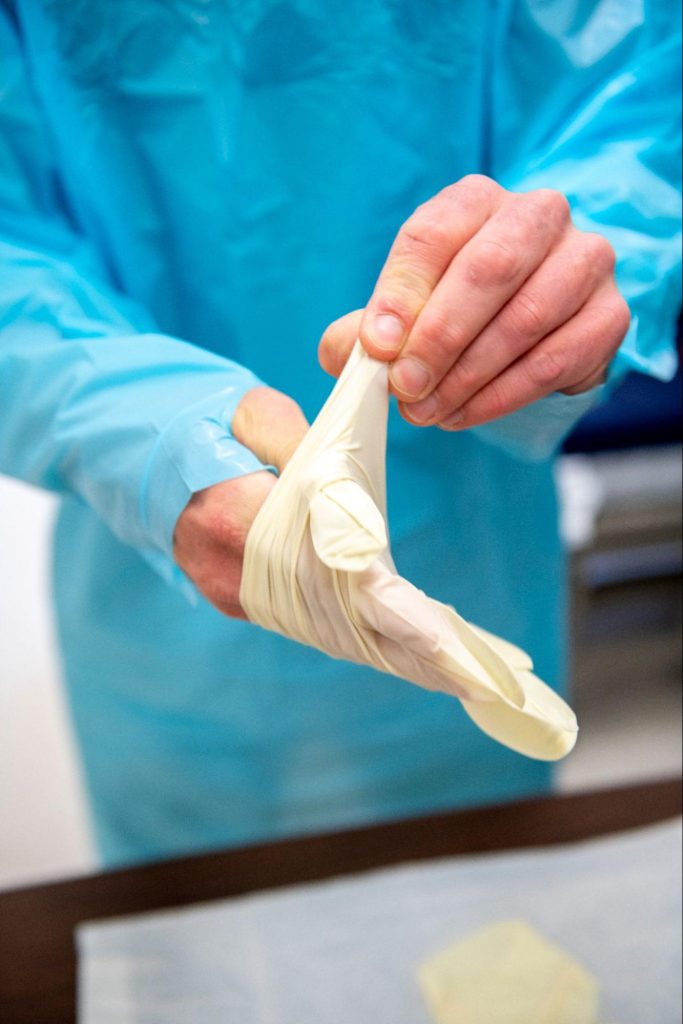
Safety: All medications, intravenous fluids, and related equipment provided for laboratory experiences are placebos and/or not intended for human use.
The use of needles, syringes, and IV equipment should be under the direct supervision of Nursing Faculty or LRC Staff.
Any injury in the lab should be reported to faculty/staff and the LRC manager. An incident report needs to be completed & submitted online by the supervising faculty.
Please report any suspicious or concerning activity, odors, or alerts to LRC Staff.
In the event of an emergency, there is a phone in the skills lab, room 140, and the simulation control room in room 124/128.
Fire exit pathways are posted throughout the LRC for reference in the event of an emergency. No food is allowed in the clinical areas of the lab. All drink containers must have covers.
If you have a fever or other symptoms of infection on your scheduled day in the lab, stay home and communicate with faculty ASAP.
Appropriate hand hygiene and cough etiquette are to be practiced as well as other guidelines specified by the University or the CDC.
Please be sure to report lab and or clinical incidents with this form
Tours: Tours of the LRC are scheduled through the admissions office and in advance for prospective students, faculty, administration or donors. Tours are most likely to occur during the designated open lab times for Open House or Admitted Student Days, but not always. Tours will not be permitted during simulation experiences or competency testing.
Director of the Learning Resource Center: Amanda Henderson, MSN, RNC-MNN, IBCLC, CCE, Office: 243 Dunn Hall, Phone: 207.581.2588, Email: amanda.b.henderson@maine.edu
Manager of the Learning Resource Center: Amy Barnes, BSN, RN, Office: 129 Dunn Hall, Phone: 207. 581.3484, Email: amy.barnes@maine.edu
Lab Technician(s): Student nurse lab employees, Office: 134J Dunn Hall
Learning Resource and Simulation Education Center

The mission of the Learning Resource and Simulation Education Center (LRC) is to provide a collection of resources and space to support the clinical learning needs of the curriculum of the School of Nursing and to serve the University of Maine community. These resources are specific to meet the needs of active learning in the areas of health assessment, medication administration, skilled nursing care, therapeutic communication, clinical judgment, and critical thinking for the purpose of competency-based assessments to meet program level outcomes. In addition, the LRC provides a learning environment that is safe, supportive, and conducive to the socialization of students into the clinical practice of nursing.
Location: The LRC is located on the first floor of Dunn Hall (rooms 112/114, 115, 124/128, 130, 140, 142, & 144).
Times: The exact hours of operation of the LRC will vary each semester, based on needs of the programs.
The LRC staff will be available M, T, TH, F, 8-2, with additional hours on Wednesdays, afternoons, and evenings based on the availability of student employees, staff, and schedule of laboratory courses. Additional hours will be published each semester and made available to faculty and students.
Open Lab: The lab is open to all students on Fridays, 9a-12p, for the purpose of practicing clinical skills. Additional hours may be available upon request. Contact the LRC manager in advance for space availability.

Usage: Most equipment and lab space can be made available to students. Any requests for use of the lab, equipment, and space outside of regularly scheduled labs, must be communicated via email to the lab manager at least 1 week in advance.
Please use all equipment as it is intended. Ask LRC staff for assistance if you have questions about how to use equipment and report any details regarding broken or faulty equipment to LRC staff.
Clean hands and pencils, no pens, are required when working with any of the LRC manikins.
All equipment and supplies are expected to be left where and how it was set-up. All trash and personal effects should be managed accordingly.
Code of Conduct: Students are expected to conduct themselves in a professional manner during all laboratory experiences – language, confidentiality, and mutual respect.
Students are expected to do a “last look” before leaving any lab to return supplies and equipment to where they found them (i.e. bed low, side-rails up, and linens made), dispose of trash, and remove personal belongings.
Students should refer to individual course syllabi for specifics related to all lab experiences for the course they are currently enrolled in. Course related questions should be directed to course faculty. Attendance is mandatory for all assigned laboratory and simulation experiences. The use of mobile phones is prohibited during skills and simulation laboratory sessions.
Ethics: Students are expected to maintain the privacy and confidentiality of any standardized patients, their peers, and competency or simulation course content. The use of social media, taking photos, and/or posting any identifiable information is strictly prohibited. Any violation of this policy will be regarded as a HIPPA violation and result in disciplinary action.
The LRC is considered a safe space for the purpose of developing and demonstrating professional nursing practice. Every effort will be made by faculty and staff to create this type of learning environment.
*Any breach of LRC expectations may result in being asked to leave the LRC.

Safety: All medications, intravenous fluids, and related equipment provided for laboratory experiences are placebos and/or not intended for human use.
The use of needles, syringes, and IV equipment should be under the direct supervision of Nursing Faculty or LRC Staff.
Any injury in the lab should be reported to faculty/staff and the LRC manager. An incident report needs to be completed & submitted online by the supervising faculty.
Please report any suspicious or concerning activity, odors, or alerts to LRC Staff.
In the event of an emergency, there is a phone in the skills lab, room 140, and the simulation control room in room 124/128.
Fire exit pathways are posted throughout the LRC for reference in the event of an emergency. No food is allowed in the clinical areas of the lab. All drink containers must have covers.
If you have a fever or other symptoms of infection on your scheduled day in the lab, stay home and communicate with faculty ASAP.
Appropriate hand hygiene and cough etiquette are to be practiced as well as other guidelines specified by the University or the CDC.
Please be sure to report lab and or clinical incidents with this form
Tours: Tours of the LRC are scheduled through the admissions office and in advance for prospective students, faculty, administration or donors. Tours are most likely to occur during the designated open lab times for Open House or Admitted Student Days, but not always. Tours will not be permitted during simulation experiences or competency testing.
Director of the Learning Resource Center: Amanda Henderson, MSN, RNC-MNN, IBCLC, CCE, Office: 243 Dunn Hall, Phone: 207.581.2588, Email: amanda.b.henderson@maine.edu
Manager of the Learning Resource Center: Amy Barnes, BSN, RN, Office: 129 Dunn Hall, Phone: 207. 581.3484, Email: amy.barnes@maine.edu
Lab Technician(s): Student nurse lab employees, Office: 134J Dunn Hall

